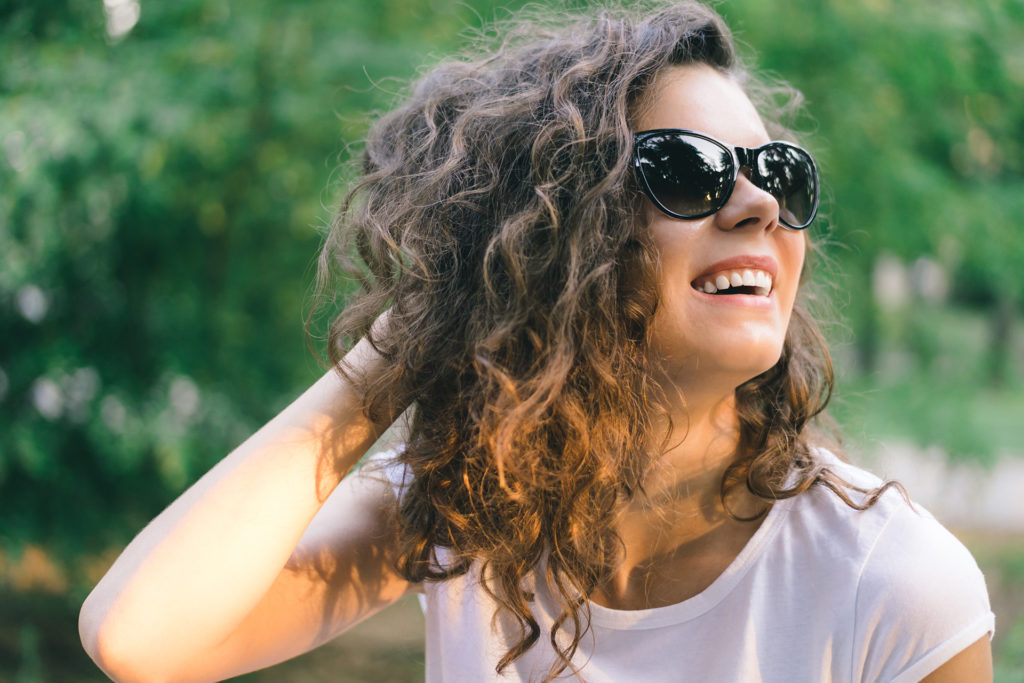Protect Your Eyes From Damaging UV Rays

By Sharon Copeland, Optician at Feel Good Contacts
We all enjoy our day a little bit more when the sun is out, but it’s important to be aware of the invisible UV rays that the sun emits and the danger these pose to our eyes.
It is estimated that over three million people go blind each year from cataracts caused or enhanced by exposure to the sun. Our eyes are one of the most delicate organs in our bodies and yet many of us take them for granted. On top of this, it’s also important to acknowledge the other dangers that the sun can pose.
There are three types of UV rays that the sun emits: UVA, UVB and UVC.
UVC rays are the most damaging, but are absorbed by the Earth’s atmosphere before they reach us and are not a direct threat, whilst UVA and UVB rays can have serious long- and short-term effects on the eyes and our vision.
The dangers of UV rays
You may have grown up being told never to look directly at the sun, and rightly so, as a number of vision-related conditions can be caused by exposing your eyes to UV rays.
These conditions include:
Macular degeneration (AMD)
UV rays can contribute to the onset of macular degeneration, a condition where the retina becomes damaged, resulting in central vision loss. This gradual loss of sight often happens as we get older, however increased exposure to UV light can speed up the process.
Cataracts
Cataracts are clouds that form on your eye’s lens, obscuring vision and your ability to focus on objects. Studies have shown that exposure to UVB rays increases the risk of cataracts forming, which require surgery to remove.
Pterygium
Also known as ‘Surfer’s Eye’, pterygium is a benign growth that forms on the conjunctiva of your eye as a result of UV light. Surfers are particularly at risk of developing pterygium due to the long periods of time they spend in the sea, with exposure to both direct and reflected UV rays.
Photokeratitis
Typically caused by UVB light reflecting off snow, photokeratitis is caused by high short-term exposure to the rays. Essentially, the eye becomes sunburnt from this light, causing blurry vision or temporary sight loss.
How to protect your eyes from UV rays
Fortunately, there are a few precautions you can take to limit your eyes’ exposure to UV rays and keep them safe from harm.
Wear sunglasses
Wearing sunglasses when it’s sunny outside is extremely important to protect your eyes from the sun. Always check that your sunglasses offer at least 99% UV protection and are marked with CE letters, which indicate their compliance with European safety regulations.
Sunglasses with darker lenses offer the most protection, while wrap around frames offer full coverage of your eyes from angles around the lenses. For extra protection, consider a pair of polarised sunglasses which protect against glare and halos from reflected rays. This can be extra useful when driving, or if down by the beach where reflected rays can be strong near the water.
Unfortunately, it is at this time of year when fraudsters flood both online and offline markets with fake sunglasses – fake Ray-Bans being the most popular brand. Whilst it is tempting to buy these cheap replicas, fake sunglasses pose a very immediate danger. Quality, branded sunglasses meet strict safety standards, but fakes don’t and fail to block UV light from reaching our eyes. In fact, they can actually allow more UV light into the back of the eyes and as a result, fake sunglasses can cause more damage to the eyes than not wearing sunglasses at all.
Hold a sun umbrella
Planning on lazing out in the sun? We recommend you sit under a large sun umbrella/parasol, as they usually offer enough shade to cover most of your body. A regular umbrella is also a great sun blocking device if you’re planning on spending long hours of the day walking around out in the open.
Wear protective clothing
Wearing a large, oversized hat will give you additional shade and help to protect your precious peepers.
Finally, you’ve probably heard this a thousand times, but make sure that you avoid looking directly at the sun. This can cause serious damage to your retina and bring about a number of eye-related conditions.
About Feel Good Contacts
Established in 2008 by qualified optometrists, London based, Feel Good Contacts (feelgoodcontacts.com) is one of the UK’s leading online suppliers of discounted contact lenses and eye care products. It is also the only UK company to offer this discounted service via a mobile app.








